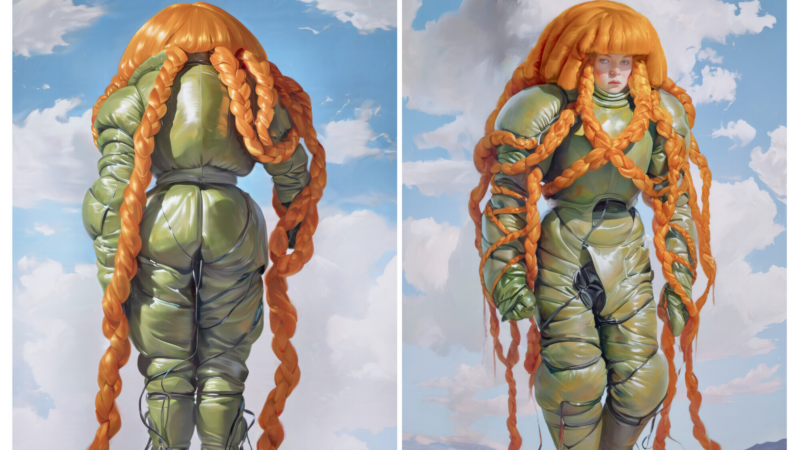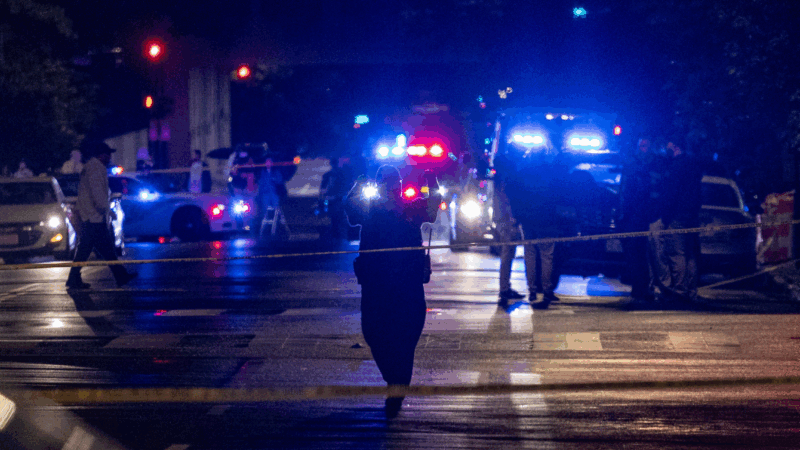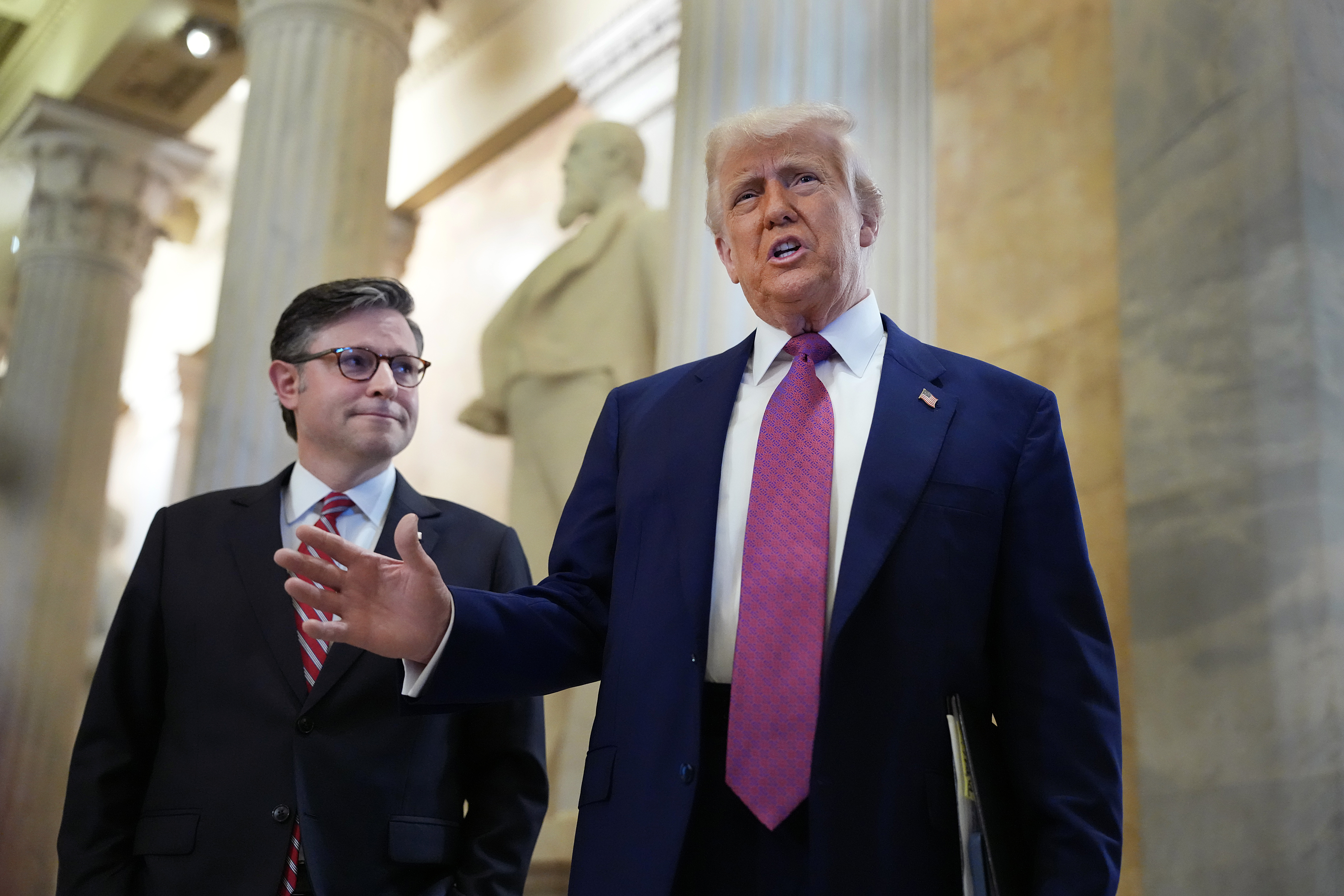Christie’s AI art auction inspires protests – and more art
Big auction houses have dabbled with AI art in the past. In 2018, Christie’s put up for auction a blurry painting of a male figure made with generative AI that was trained on thousands of historic portraits. It sold for more than $400,000. And a painting created by an AI robot artist named Ai-Da went for more than $1 million at Sotheby’s last year.
But Christie’s upcoming Augmented Intelligence sale may represent the first time a major auction house is focusing entirely on works created using machine learning. It includes pieces by prominent digital artists such as Sasha Stiles, Holly Herndon & Mat Dryhurst, Refik Anadol and Alexander Reben.
“ It’s really fun to be part of this,” said Reben, an artist-in-residence at Meta, whose contribution to Christie’s sale is a work painted live by a robot — which gets larger the more that people bid. “It’s kind of a benchmark.”
Artists protest
Many other artists, however, are less than enthusiastic.
“Christie’s just doesn’t care about artists,” said artist Karla Ortiz, a plaintiff in an ongoing class action copyright infringement lawsuit against several image-based AI companies. “They just want to make money.”
Ortiz was among the first people to sign an online letter asking Christie’s to cancel the sale. It alleges that many of the auction’s 34 artworks were created using commercial AI models that could have been trained on unlicensed, copyrighted work.
This is a big concern for people who make a living from their art: There are a slew of lawsuits moving through the U.S. courts in which artists claim AI companies trained large language models on their works of art without notifying or compensating them.
The letter protesting the Christie’s sale has garnered thousands of signatures from artists, academics and others around the world since it appeared online Feb. 8.
“These models, and the companies behind them, exploit human artists, using their work without permission or payment to build commercial AI products that compete with them,” the letter stated. “Your support of these models, and the people who use them, rewards and further incentivizes AI companies’ mass theft of human artists’ work.”
“For me, it was a no brainer. I had to sign it,” Ortiz said of the letter. “Christie’s is an institution. It’s a household name. And for them to be holding this show basically normalizes what I consider theft.”
The demand for AI art is growing
The auction house disagrees.
“AI is learning everything that it possibly can from an entire set of data and images to then create something new,” said Nicole Sales Giles, Christie’s director of digital art. “That’s influence. Not theft.”
Giles said copyright issues arising from the training of commercial AI models on the works of art featured in the sale are beyond the auction house’s purview.
She noted that the demand for AI art is growing, especially among those who work in blockchain, crypto and venture capital. According to a report from the market research firm Business Research Company, the global AI art market is expected to be worth nearly $1 billion in 2028, roughly double what it was in 2023.
Giles said Christie’s has no intention of canceling the upcoming sale. But she welcomes the voices of dissent. “We are excited that a sale is sparking such passionate conversation around art,” Giles said. “This is what art should be doing.”
The letter inspires more art
The sale and the letter protesting it have inspired more artists to comment on the fraught relationship between art and commerce.
For example, the artist Beeple – best known for selling a piece of crypto-art through Christie’s for nearly $70 million in 2021 – posted an artwork on social media titled “The War of Art.” It depicts a giant, shiny robot aggressively correcting the letter with red ink as he holds a leash attached at the other end to a tiny human.
THE WAR OF ART pic.twitter.com/pzrUvLvNXx
— beeple (@beeple) February 9, 2025
Digital art experts aren’t surprised the Christie’s show is creating so much debate.
“Given the lack of sufficient public funding for the arts, especially in the United States, artists are right to be concerned about the uncritical adoption of heavily monetized technologies that could only be developed with the benefit of their work,” said Barry Threw, executive and artistic director of Gray Area, a digital culture incubator in San Francisco.
“However, the history of art is a history of technology development, and we desperately need artists to engage with new technologies like AI to help metabolize, understand, and communicate the abrupt social changes they create.”
Augmented Intelligence is scheduled to open for bidding online and at Christie’s New York on Feb. 20 and runs through March 5.
Jennifer Vanasco edited this story for radio and web.
2 Israeli Embassy staff are killed in a shooting in Washington, D.C., officials say
As attendees departed an event held by a Jewish advocacy organization in D.C. on Wednesday night, a shooter opened fire, killing two. Later, he chanted "free Palestine," D.C. police officials said.
Trump tried to shutter Radio Free Europe. The EU threw it a lifeline
EU officials say the broadcaster for years has played an important role providing news to areas where the press can't operate freely
Here’s what’s in the GOP megabill that’s headed for a vote in the House
At the center of the sweeping bill is trillions in tax cuts, which Republicans aim to partially offset through changes to safety net programs like Medicaid and SNAP.
Alabama Power threatened with lawsuit for contaminating groundwater with coal ash
Nine years after the Gadsden Steam Plant stopped burning coal, its unlined coal ash pond is still polluting Alabama groundwater, records show.
Southwest Airlines will require passengers to keep chargers visible due to fire risk
This year, there have been at least 22 incidents involving lithium batteries in air travel, according to data from the Federal Aviation Administration.
Trump administration officially accepts jet from Qatar for use as Air Force One
The plane is a gift that Trump said he would be "stupid" to turn down. Experts say the plane would take years to rework to meet the current standards for Air Force One.









